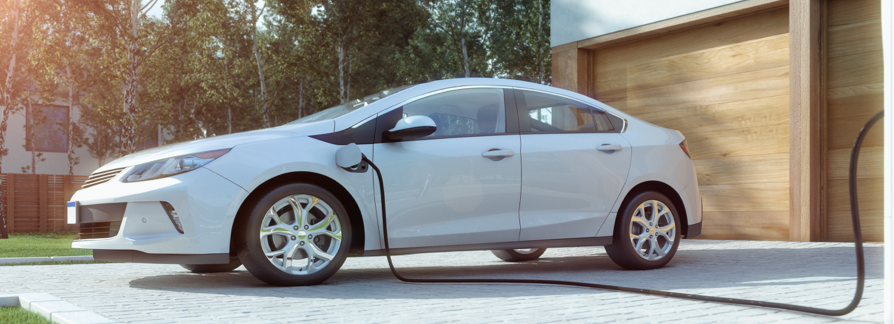Why the state needs to lead the way on EV adoption
When most people think of major sources of carbon dioxide emissions, they think of coal and natural gas plants. For a long time, generating electricity from fossil fuels was the main culprit for carbon emissions, and much effort has been made to transition to renewables like wind and solar to significantly cut carbon emissions.
While carbon emissions from electricity have gone down, carbon emissions from transportation—the cars, planes, trains, trucks and buses we use to get around—have increased over the last decade. In fact, transportation is now the leading contributor to carbon emissions in the U.S. In 2017, transportation sector carbon emissions surpassed those from the energy sector and represented approximately 27% of total carbon emissions.
In 2018, the latest report from the International Panel on Climate Change (IPCC) made it clear that we need to significantly reduce carbon emissions across the board in the next 12 years in order to avoid catastrophic impacts from climate change. We need a multifaceted approach to reduce carbon emissions, and we believe there are real opportunities for Wisconsin to cut carbon emissions while transforming how people get around. One path forward is by electrifying the millions of cars Wisconsin residents use for their daily travel, but this will only be effective if the state takes a leading role to reduce the barriers keeping many people from purchasing and using electric vehicles, or EVs.
You might be wondering why EVs would be key for reducing carbon emissions if the electricity used to power them is generated by fossil fuels. That’s certainly an important consideration here in Wisconsin, where approximately 70% of electricity generation comes from coal and natural gas. Despite this, EVs are already approximately 40% cleaner than gasoline and diesel engines on a grams of carbon emissions per mile traveled basis. Said differently, an EV on the road contributes roughly 40% less carbon dioxide than a similar car running on gas or diesel, even when the EV is powered by electricity created by burning fossil fuels. Gas- and diesel-powered cars will always burn fossil fuels to run, but as we make the transition to carbon-free electricity, the carbon impact of EVs will only continue to drop.
The benefits of EVs go beyond reducing carbon emissions. Fuel costs for EVs are roughly half that of a gas-powered car on a cost per mile basis. Plus, EVs don’t need the amount of maintenance demanded by a standard combustion engine, meaning there are real cost and time savings. Imagine never having to take your car into the shop for an oil change!
For the transportation sector to play a significant role in reducing carbon emissions, consumers will need to have access to and purchase EVs and overcome the real and perceived barriers to EV adoption. The most common barriers to adoption are range anxiety and the perceived ability to charge an EV. In Wisconsin, there is an opportunity to construct a robust network of EV charging stations to allow people to confidently travel long distances across our state further decreasing carbon emissions. As EV adoption becomes more widespread, a state network of fast, easy-to-use charging stations can encourage people to travel further and to more places around the state, boosting EV tourism and bolstering local communities.
Governor Evers Administration is looking to address these barriers on multiple fronts. The PSC, which regulates electric utility providers, recently convened key EV stakeholders to help them understand specific EV needs and how EVs may impact the utility and energy sector.
We support Governor Evers’ efforts in the transportation sector and will be working with both the administration and legislature to find a solution to enable the electrification of the transportation sector, reduce vehicle carbon emissions, and support the electric vehicle transformation underway across the United States and right here in Wisconsin.
There’s a lot of forward movement in the governor’s office and the legislature to encourage the use of EVs, and it’s critical that these efforts keep progressing. Already, other states are taking significant steps to encourage EV adoption. In Michigan, a package of bills aimed at boosting EVs have been introduced with the hopes of making Michigan the leader in this industry. Great opportunities for Wisconsin exist around encouraging EV adoption, but if we don’t act soon, we could get left behind by our neighbors.
Electric vehicles are a prime opportunity to cut climate changing carbon emissions, reduce air pollution that harms our health, and move transportation in Wisconsin forward. There’s a lot of attention on fixing our crumbling roads, but not as much attention on what transportation will look like in the coming years, or what infrastructure we’ll need to make that a reality. A network of EV charging stations will be critical to enabling a new era of travel in the state that is good for our environment, economy and communities.

